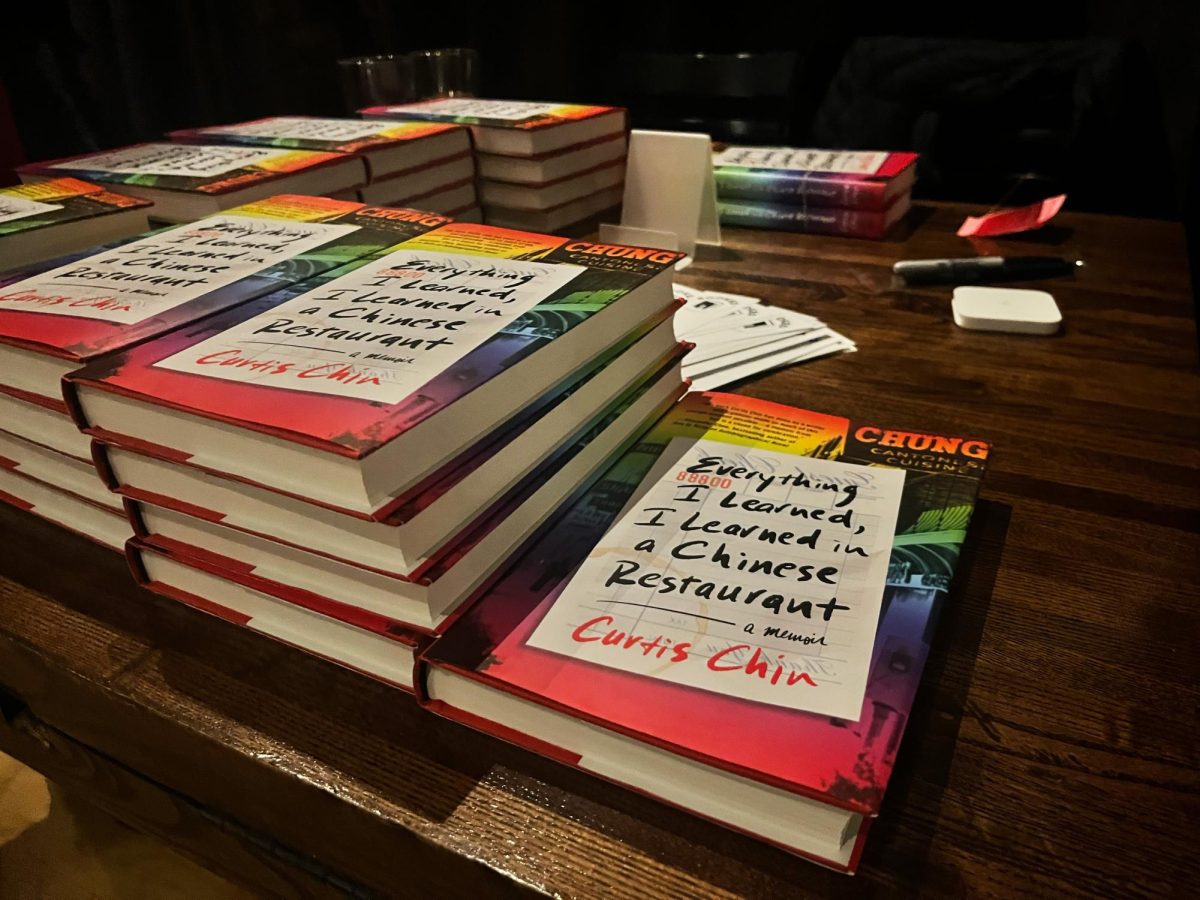Curtis Chin did not intend to be a memoirist.
Instead, Chin first considered becoming a poet, he said at a Thursday evening talk at Koi.
Chin — the author of “Everything I Learned, I Learned in a Chinese Restaurant” — said he pursued a career as a creative writer and storyteller. He has also worked as a documentarian and television and film writer.
“If I studied poetry and only wrote haikus, I could graduate in fewer than 500 words,” Chin said.
A co-founder of the Asian American Writers’ Workshop in New York City, Chin published a memoir in October about his upbringing in 1980s Detroit. The book discusses how he navigated his gay and Chinese-American identities.
Chin talked about his book at an event hosted by Evanston Asian, South Asian, and Pacific Islander Americans. The event was part of Evanston ASPA’s Visible Voices Project.
Melissa Raman Molitor, Evanston ASPA’s founding director, said the project was created to raise awareness of the diverse cultures that comprise the Asian American diaspora while dispelling harmful stereotypes.
“We’re really just creating more opportunities for Asian American voices and stories,” Molitor said.
Chin’s talk is the first event in the Visible Voices series. The next installment is a webinar on May 1 on Asian American Racialization.
After introducing himself and the memoir, Chin read and discussed the prologue of the book, before moving on to a Q&A.
“A lot of it is an Asian American or gay memoir, but it’s also a Detroit memoir,” Chin said of the book.
He said he started writing the book as a family memoir. As Chin and his siblings were leaving Detroit, he wanted to cover his family’s “100-year history” in the city, he said.
Chin also addressed open-mindedness in Asian American communities, particularly concerning LGBTQ+ issues. While not included in the book, he told his audience about coming out to his family.
“The very next day, they were calling (Parents, Families, and Friends of Lesbians and Gays) asking for materials,” Chin said.
Cathie Punsalang, a freelance reviewer of culinary literature, was drawn to the event after seeing it advertised online, she said. She didn’t previously know about the book but purchased it during the event.
Punsalang said she is looking forward to reading the book because of how Chin spoke about social justice issues affecting his childhood.
“He brings a lot of perspective on his hometown and the Asian American community,” she said.
Chin said he is currently planning a follow-up memoir about the process of selling his family’s restaurant, along with other writing projects.
He joked that the story of selling that restaurant is similar to TV series “The Bear,” but set in a Chinese restaurant.
“But mine would be called ‘The Leftovers,’” he said.
Email: [email protected]
Related Stories:
— Evanston ASPA envisions Asian American Art and Cultural Center






